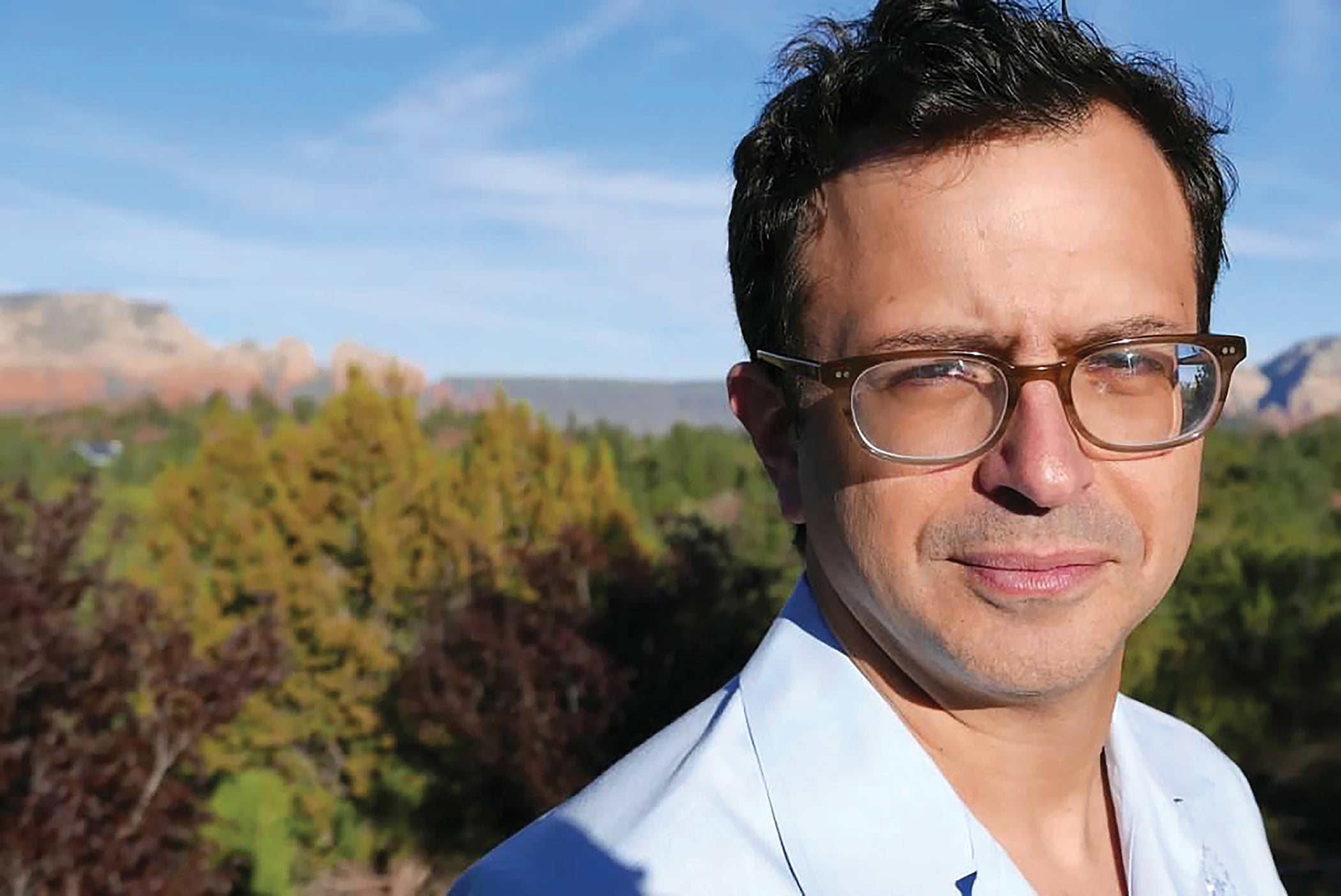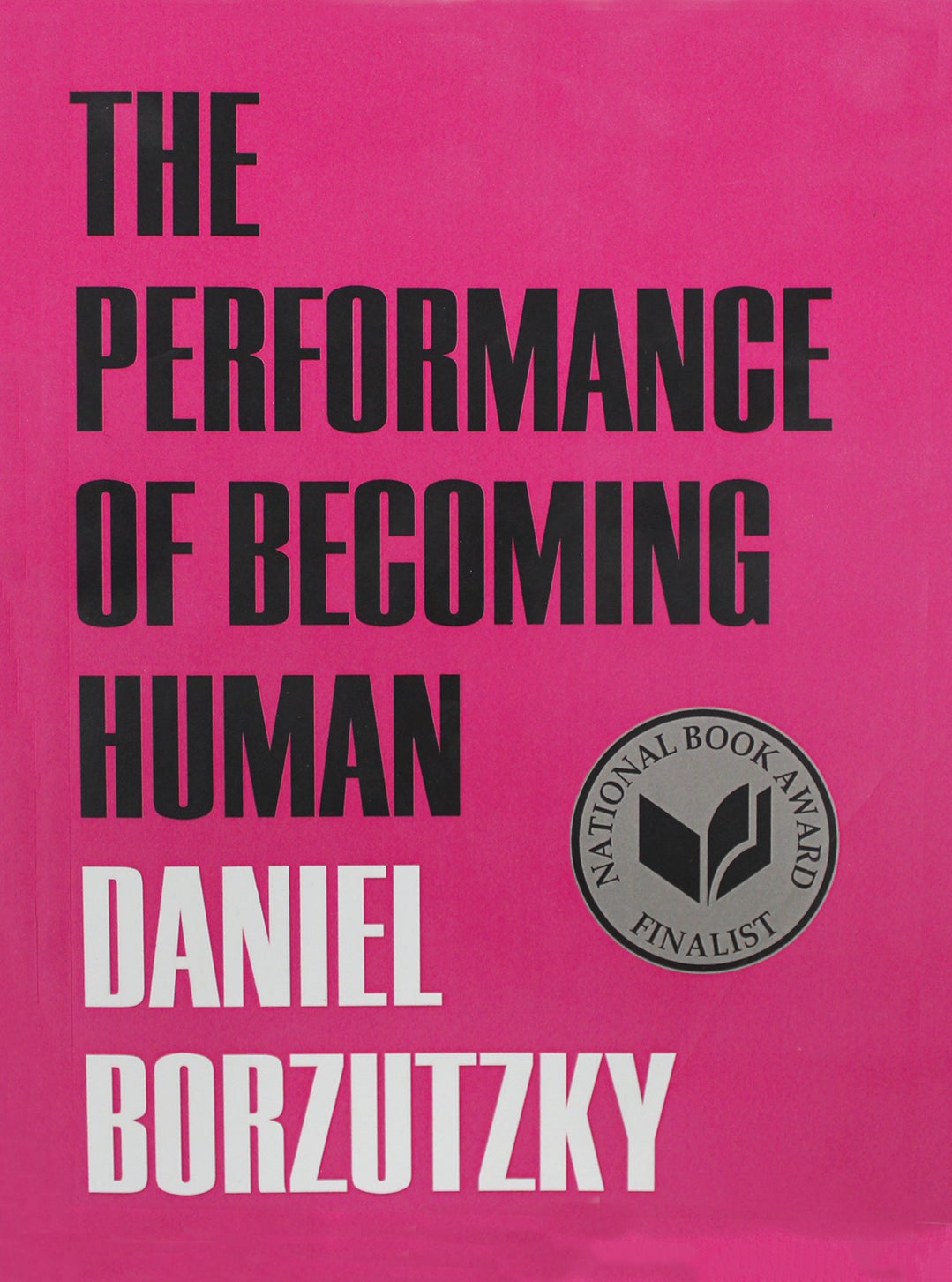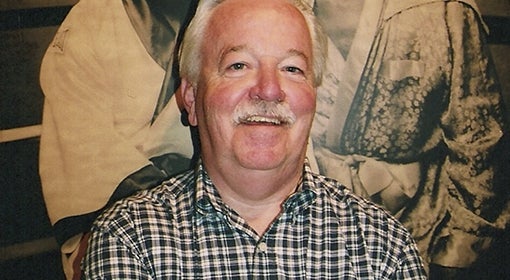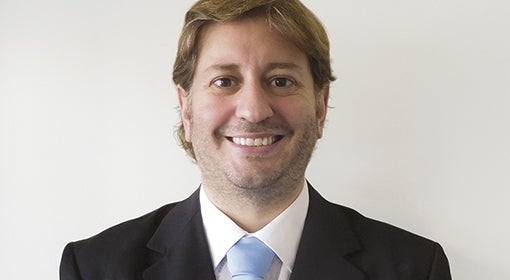 In a complex world, poet Daniel Borzutzky finds hope in acts of creativity—particularly writing.
In a complex world, poet Daniel Borzutzky finds hope in acts of creativity—particularly writing.
“It’s extremely valuable to channel one’s anger, rage, and complicated relationship to community into works of art,” he says. “It starts conversations that provide readers with ways of understanding their own place in the world.”
Borzutzky’s sixth collection of poetry, The Performance of Becoming Human (Brooklyn Arts Press), is borne of this impulse to put feelings to work on the page. Within the book’s 17 poems, the Pitt alumnus grapples with concepts of exploitation, violence, authority, and personhood. The tone ranges from darkly humorous to starkly serious as individuals are shown struggling against each other and structures of power.
The conversation his work started has taken off. The book received the 2016 National Book Award for poetry, one of the country’s highest literary honors. In their award citation, the judges wrote, “These poems ask how we (or maybe how dare we) experience the tragedies of oppression and cruelty as if they were as mundane as making the bed”.
 The son of Chilean immigrants, Borzutzky grew up in Pittsburgh’s Squirrel Hill neighborhood. At Pitt, he was a philosophy major with writerly ambitions and a predilection for history classes. One professor stands out in his memory: historian Marcus Rediker, whose research includes investigations of slavery and social justice. “He was a model for how to be a committed activist, as well as a teacher, thinker, and role model for students,” recalls Borzutzky (A&S ’97).
The son of Chilean immigrants, Borzutzky grew up in Pittsburgh’s Squirrel Hill neighborhood. At Pitt, he was a philosophy major with writerly ambitions and a predilection for history classes. One professor stands out in his memory: historian Marcus Rediker, whose research includes investigations of slavery and social justice. “He was a model for how to be a committed activist, as well as a teacher, thinker, and role model for students,” recalls Borzutzky (A&S ’97).
Today, the poet is a positive model for his own students. He teaches creative writing and Latin American literature at Wilbur Wright College in Chicago. He’s also an acclaimed translator of Chilean poetry and fiction.
With a National Book Award on his shelf, Borzutzky recently finished a new collection of prose poems, Lake Michigan, to be published in 2018 by University of Pittsburgh Press. It takes place in an imagined prison camp on the beach in Chicago, an image that first appeared in The Performance of Becoming Human. As before, he’s using creativity to search for understanding.
“Poetry doesn’t have to follow the rules of a particular reality,” he says.
“Something art can do is evoke reality and take it to its most extreme conclusions without having to accurately document what occurred.”
Bookshelf Briefs
Square One: A Simple Guide to a Balanced Life (Pythia Publishing) Though excelling professionally, Pitt neurological surgery professor Joseph Maroon was struggling with depression when he found inspiration in entrepreneur William Danforth’s philosophy of a “four square” life that balances work, relationships, spirituality, and health. The concept transformed Maroon’s priorities and led him to share his own experiences in Square One: A Simple Guild to a Balanced Life. With coauthor Carrie Kennedy, he weaves together science, advice, and personal anecdotes to create a roadmap to finding fulfillment. —Christiana Dillard
Under the Kaufmann’s Clock (Six Gallery Press) In Under the Kaufmann’s Clock, writer and community activist Angele Ellis (A&S ’79) takes readers to some of Pittsburgh’s most iconic locales as she explores their metaphors and associations to the city’s people. The hybrid collection of poems and flash fiction is divided into seasons and accompanied by the black and white photography of Rebecca Clever. It’s a lyrical, nostalgic tour of Pittsburgh’s past and present culture, and of Ellis’s personal loss, pain, and intimacies. —CD
The Life Group (Lakewater Press) Thirteen days after her sister’s suspicious disappearance, 17-year-old Rachel goes hunting for clues that police can’t seem to find. Her search leads her to a dubious church and one of its members, Tim, who agrees to help her find answers. What the two learn in just a day changes everything. Psychological thrills abound in The Life Group, the debut young adult novel by Maura Jortner (A&S ’05G), a senior lecturer of English at Baylor University. —CD
Voice of Business (Indiana University Press) Richard Lesher (BUS ’58) overcame the hardships of Depression-era Pennsylvania to ascend to a 22-year tenure as the president of the U.S. Chamber of Commerce. There, he used the media, bipartisanship, and international advocacy to expand the organization’s national and global influence. Part memoir, part economic treatise, Voice of Business: The Man Who Transformed the United States Chamber of Commerce, cowritten with Dave Scheiber, chronicles Lesher’s journey and belief that “hard work and perseverance” powers free enterprise. —Emma Creighton
This article appeared in the Winter 2018 issue of Pitt Magazine.




